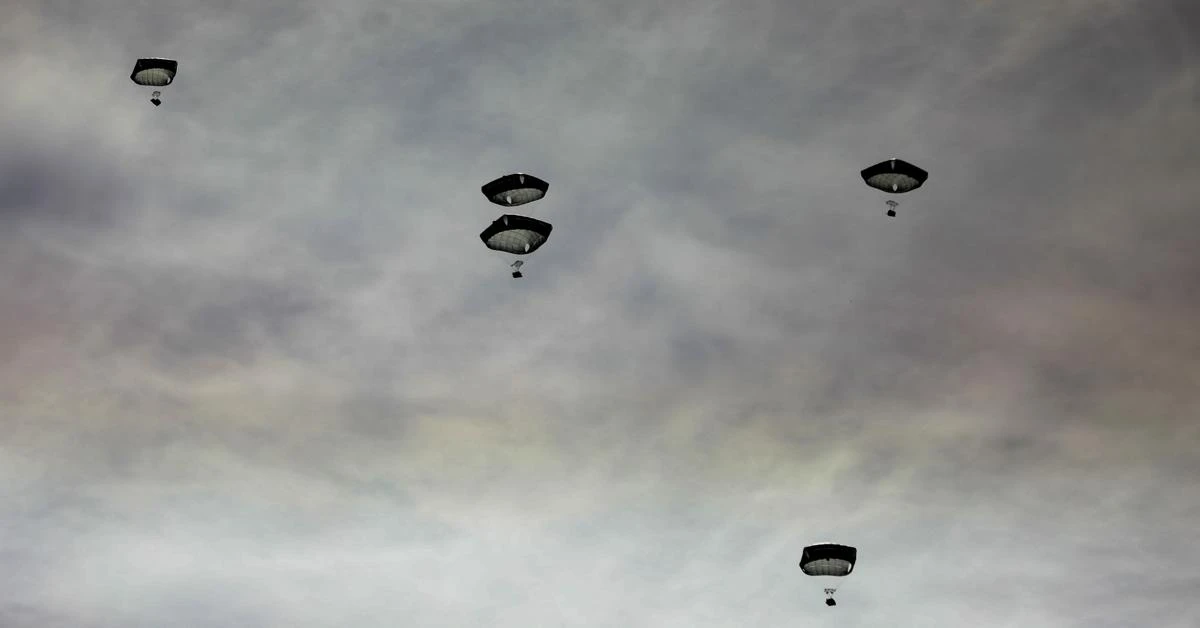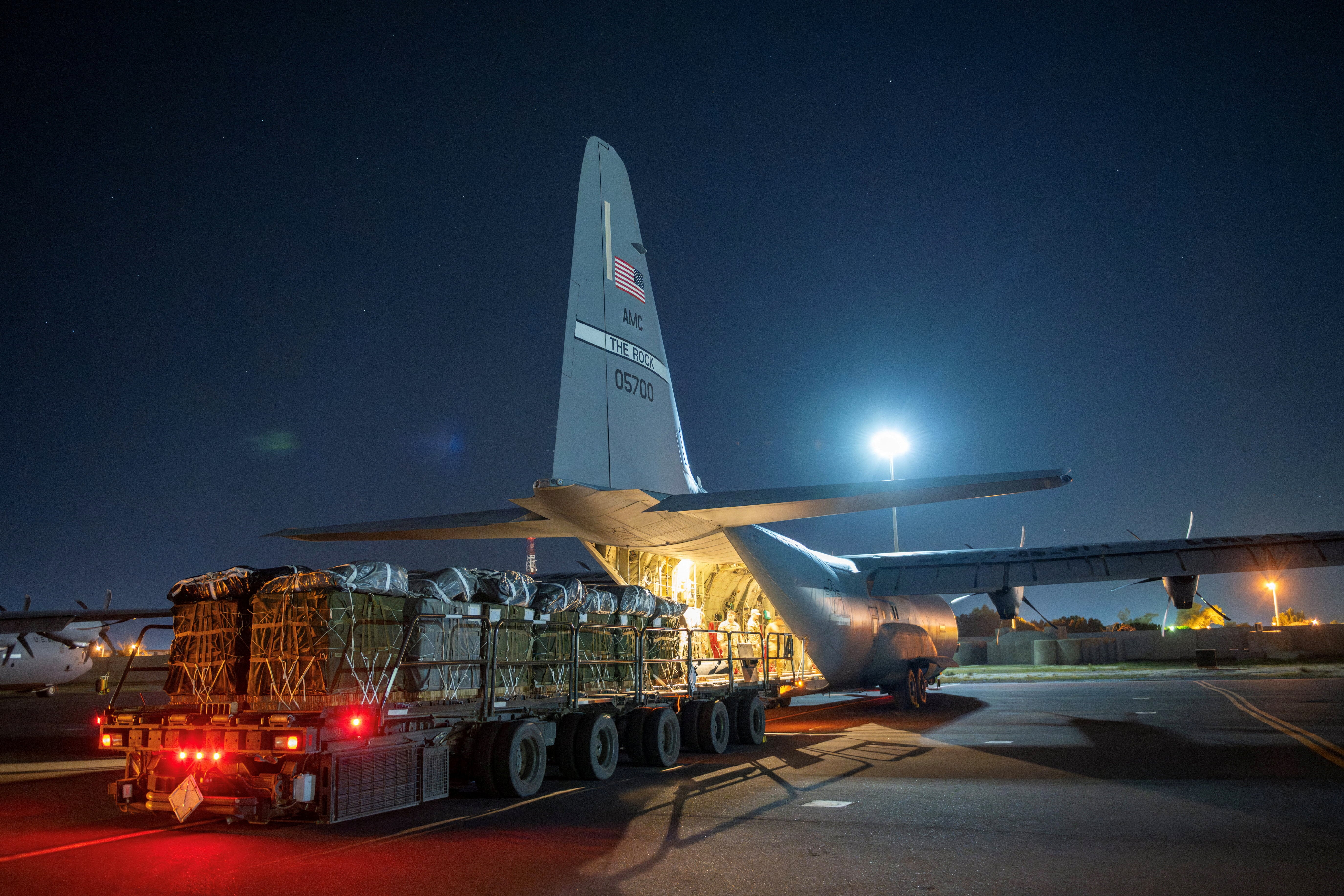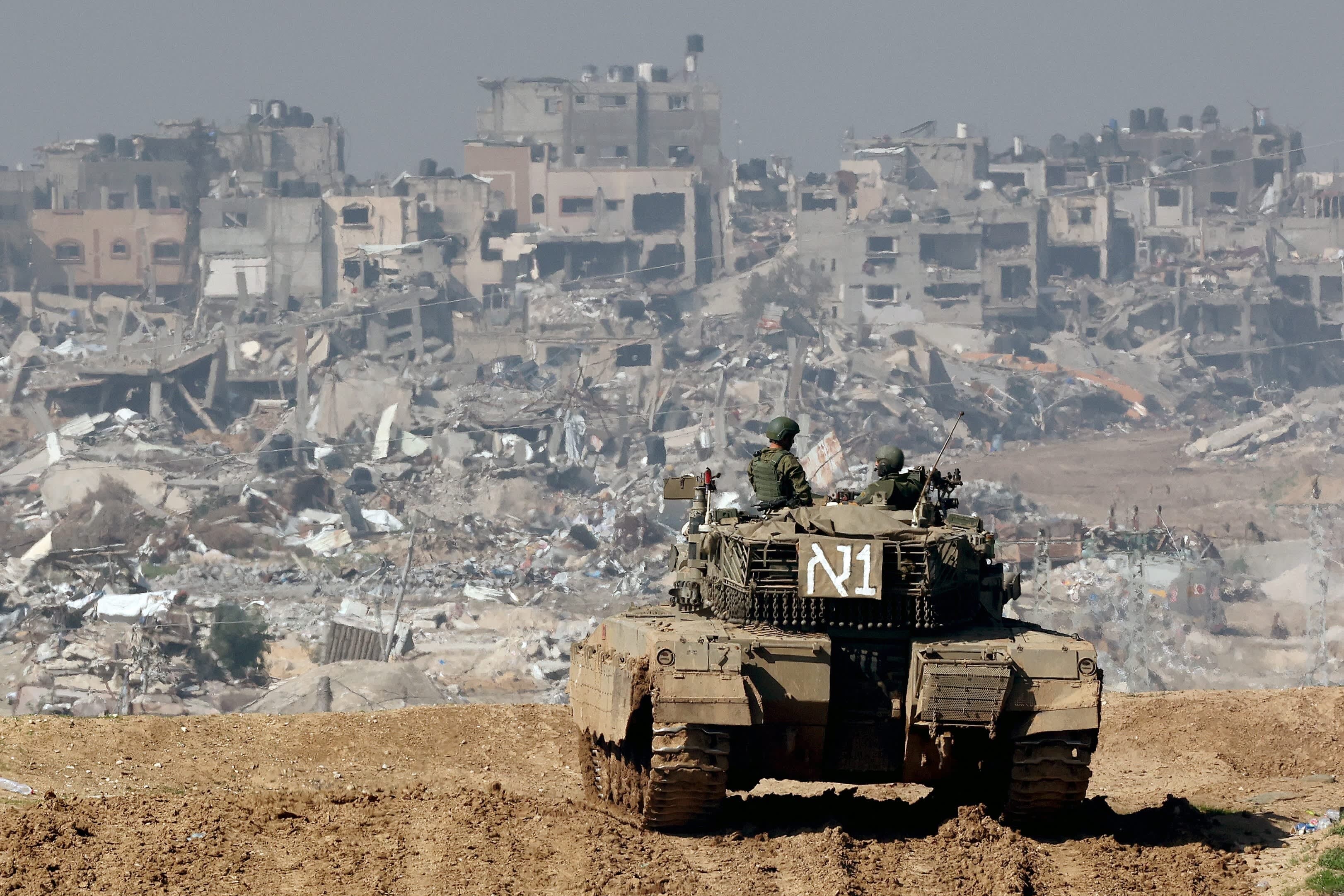US launches aid airdrops in Gaza as Israel tentatively agrees to cease-fire

The U.S. embarks on controversial aid airdrop mission in Gaza as negotiators push for ceasefire agreement before Ramadan amidst rising humanitarian concerns
A senior US official has announced that Israel has tentatively agreed to a six-week ceasefire in Gaza, setting the stage for potential peace.
This agreement reportedly awaits Hamas’ consent to release the most vulnerable hostages, including the sick, wounded, elderly, and women. “There’s a framework deal. The Israelis have more or less accepted it,” the official stated on a call with reporters.
The focus has now shifted to Hamas, with the US official noting, “Right now, the ball is in the camp of Hamas.”
Negotiators are working tirelessly to secure this ceasefire ahead of Ramadan, which begins in about a week.
“It will be a six-week ceasefire in Gaza starting today if Hamas agrees to release the defined category of vulnerable hostages,” the official added, underlining the urgency of the situation.
The US hopes that this ceasefire could pave the way for a more enduring peace settlement between Israel and Hamas. According to a source close to the group who spoke to Agence France-Presse, a Hamas delegation is reportedly heading to Cairo for truce talks.
United States initiates first aid airdrop in Gaza

Parallel to these diplomatic efforts, the US military has executed its first airdrop of humanitarian aid into Gaza.
Three C-130 planes delivered over 38,000 meals to a region where the UN reports a quarter of the population is a step away from famine. Videos on social media show boxes of aid being dropped, with the airdrops occurring over southwestern Gaza and the town of Mawasi.
While the White House states this will be a sustained effort and that Israel supports the operation, critics argue airdrops have limited impact and cannot ensure supplies avoid militant hands.
This operation follows a tragic incident in northern Gaza on Thursday, where, according to Gaza’s Hamas-run health ministry, over 115 Palestinians died while trying to access aid. President Joe Biden commented on this dire situation: “The loss of life is heartbreaking,” he said. “People are so desperate.”
However, a senior US official said on Saturday that US air drops of aid to Gaza cannot replace the need for as much humanitarian relief as possible to move by land into the Palestinian territory under bombardment by Israel.
The official expressed their concern to reporters on condition of anonymity by saying, “None of these [maritime corridors, air drops] are an alternative to the fundamental need to move assistance through as many land crossings as possible. That’s the most efficient way to get aid in at scale.”
Other critics have also questioned the sufficiency of the airdrops. Dave Harden, a former USAID director, criticized the approach: “Really what needs to happen is more crossings [opening] and more trucks going in every day?” He expressed disappointment in the US’s effectiveness in compelling Israel to facilitate more aid.
Echoing this sentiment, international aid organizations like Medical Aid for Palestinians and Oxfam have urged for the immediate opening of all Gaza crossings. “While Palestinians in Gaza have been pushed to the absolute brink, dropping a paltry, symbolic amount of aid into Gaza with no plan for its safe distribution would not help and be deeply degrading to Palestinians,” stated Scott Paul from Oxfam.
Mediations between Israel and Hamas set to resume

In Cairo, mediators will resume talks on Sunday to solidify the ceasefire framework. “The hostages have to be released,” a senior US official told reporters, emphasizing the proximity of a deal. Meanwhile, US Vice President Kamala Harris is set to meet Israeli war cabinet member Benny Gantz at the White House on Monday.
Amidst these diplomatic moves, the humanitarian situation in Gaza remains dire. The health ministry reported at least 11 Palestinians killed in an Israeli airstrike near Rafah, and more than a million Palestinians are seeking refuge in the area, fleeing the Israeli offensive.
The urgency of the crisis is further highlighted by recent incidents, including the deaths of three people in Beit Hanoun while searching for food and 13 children at the Kamal Adwan hospital in northern Gaza due to malnutrition and dehydration.
Source: Newsroom



